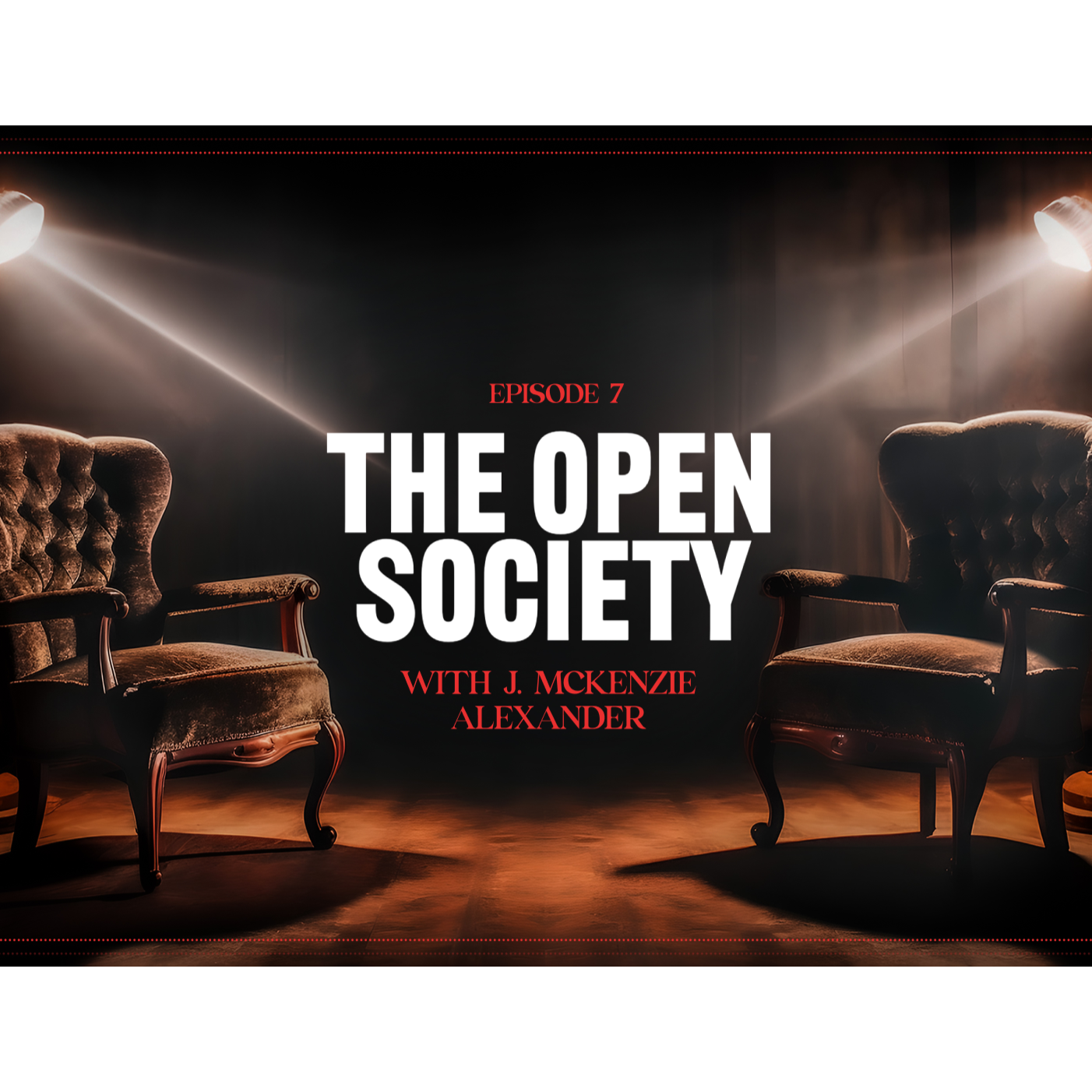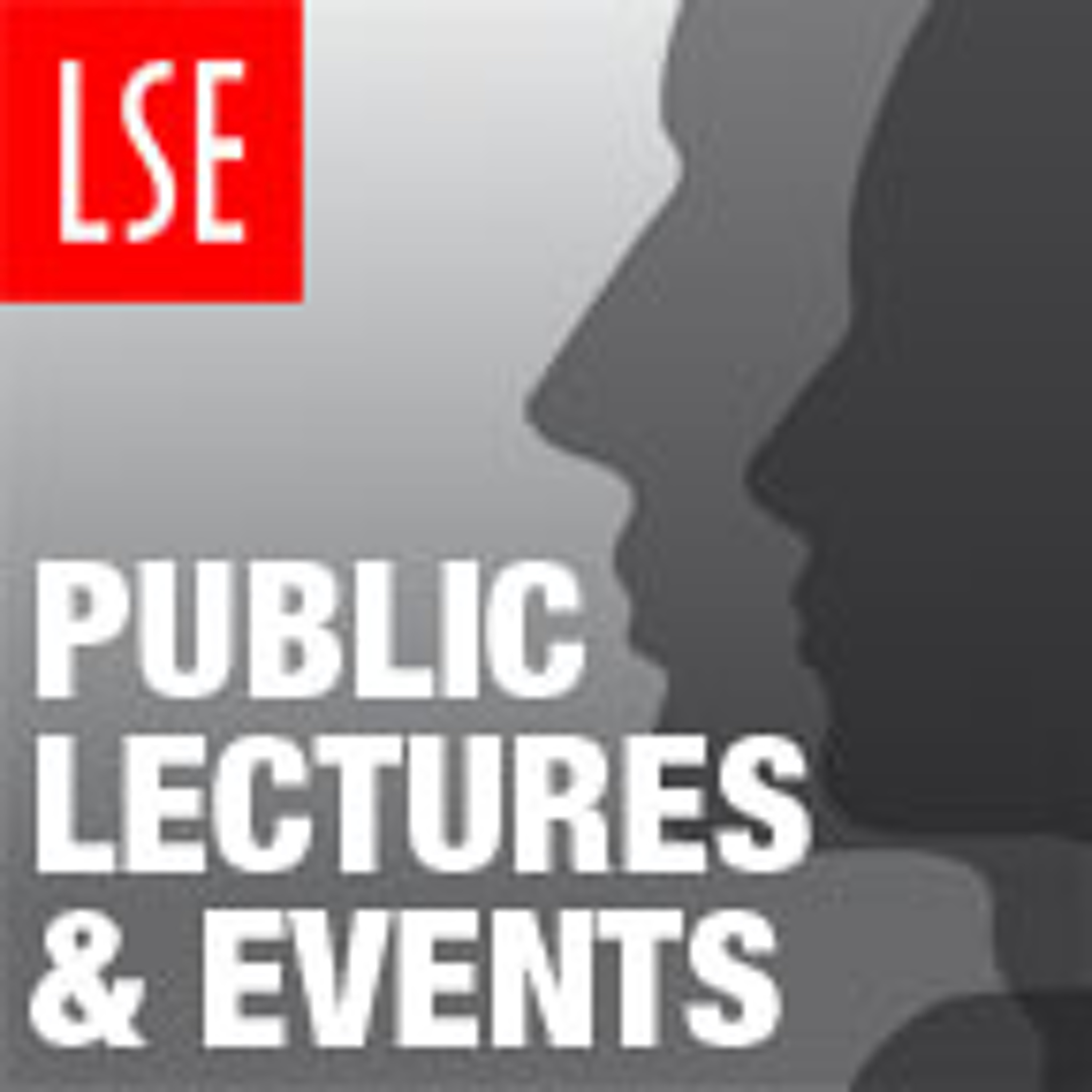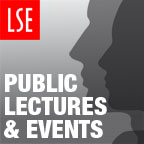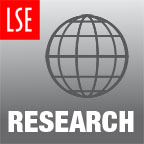Shows
 The Philosopher & The NewsThe Open Society As An Enemy - Jason Alexander McKenzieThis podcast series started in January 2021. The first episode was on the Insurrection at the Capitol, instigated by Trump on the basis of his claim that the 2020 election was stolen. This episode was recorded just shy of a week away from Trump’s second inauguration as President of the United States. Trump’s signature policy proposals during his campaign had to do with deporting millions of illegal immigrants, closing the boarders, imposing tariffs on international trade, and returning to a kind of isolationism in foreign policy by removing US military support for Ukraine. Trump had gone on to implement many...2025-07-2146 min
The Philosopher & The NewsThe Open Society As An Enemy - Jason Alexander McKenzieThis podcast series started in January 2021. The first episode was on the Insurrection at the Capitol, instigated by Trump on the basis of his claim that the 2020 election was stolen. This episode was recorded just shy of a week away from Trump’s second inauguration as President of the United States. Trump’s signature policy proposals during his campaign had to do with deporting millions of illegal immigrants, closing the boarders, imposing tariffs on international trade, and returning to a kind of isolationism in foreign policy by removing US military support for Ukraine. Trump had gone on to implement many...2025-07-2146 min Latest 300 | LSE Public lectures and events | VideoThe future of truthContributor(s): Professor Jason McKenzie Alexander, Professor Charlie Beckett, Hardeep Matharu | In a world of mass information, and misinformation, truth seems both easier and harder to find than ever before. As trust in traditional media erodes and social media blurs the line between fact and fiction, with authoritarian regimes weaponising disinformation and post-truth world leaders taking centre stage, how do we defend and promote knowledge, evidence and informed debate?2025-06-211h 00
Latest 300 | LSE Public lectures and events | VideoThe future of truthContributor(s): Professor Jason McKenzie Alexander, Professor Charlie Beckett, Hardeep Matharu | In a world of mass information, and misinformation, truth seems both easier and harder to find than ever before. As trust in traditional media erodes and social media blurs the line between fact and fiction, with authoritarian regimes weaponising disinformation and post-truth world leaders taking centre stage, how do we defend and promote knowledge, evidence and informed debate?2025-06-211h 00 Latest 100 | LSE Public lectures and events | Audio and pdfThe future of truthContributor(s): Professor Jason McKenzie Alexander, Professor Charlie Beckett, Hardeep Matharu | In a world of mass information, and misinformation, truth seems both easier and harder to find than ever before. As trust in traditional media erodes and social media blurs the line between fact and fiction, with authoritarian regimes weaponising disinformation and post-truth world leaders taking centre stage, how do we defend and promote knowledge, evidence and informed debate?2025-06-211h 00
Latest 100 | LSE Public lectures and events | Audio and pdfThe future of truthContributor(s): Professor Jason McKenzie Alexander, Professor Charlie Beckett, Hardeep Matharu | In a world of mass information, and misinformation, truth seems both easier and harder to find than ever before. As trust in traditional media erodes and social media blurs the line between fact and fiction, with authoritarian regimes weaponising disinformation and post-truth world leaders taking centre stage, how do we defend and promote knowledge, evidence and informed debate?2025-06-211h 00 Latest 100 | LSE Public lectures and events | AudioThe future of truthContributor(s): Professor Jason McKenzie Alexander, Professor Charlie Beckett, Hardeep Matharu | In a world of mass information, and misinformation, truth seems both easier and harder to find than ever before. As trust in traditional media erodes and social media blurs the line between fact and fiction, with authoritarian regimes weaponising disinformation and post-truth world leaders taking centre stage, how do we defend and promote knowledge, evidence and informed debate?2025-06-211h 00
Latest 100 | LSE Public lectures and events | AudioThe future of truthContributor(s): Professor Jason McKenzie Alexander, Professor Charlie Beckett, Hardeep Matharu | In a world of mass information, and misinformation, truth seems both easier and harder to find than ever before. As trust in traditional media erodes and social media blurs the line between fact and fiction, with authoritarian regimes weaponising disinformation and post-truth world leaders taking centre stage, how do we defend and promote knowledge, evidence and informed debate?2025-06-211h 00 All items | LSE Public lectures and events | Audio and pdfThe future of truthContributor(s): Professor Jason McKenzie Alexander, Professor Charlie Beckett, Hardeep Matharu | In a world of mass information, and misinformation, truth seems both easier and harder to find than ever before. As trust in traditional media erodes and social media blurs the line between fact and fiction, with authoritarian regimes weaponising disinformation and post-truth world leaders taking centre stage, how do we defend and promote knowledge, evidence and informed debate?2025-06-211h 00
All items | LSE Public lectures and events | Audio and pdfThe future of truthContributor(s): Professor Jason McKenzie Alexander, Professor Charlie Beckett, Hardeep Matharu | In a world of mass information, and misinformation, truth seems both easier and harder to find than ever before. As trust in traditional media erodes and social media blurs the line between fact and fiction, with authoritarian regimes weaponising disinformation and post-truth world leaders taking centre stage, how do we defend and promote knowledge, evidence and informed debate?2025-06-211h 00 All items | LSE Public lectures and events | All media typesThe future of truthContributor(s): Professor Jason McKenzie Alexander, Professor Charlie Beckett, Hardeep Matharu | In a world of mass information, and misinformation, truth seems both easier and harder to find than ever before. As trust in traditional media erodes and social media blurs the line between fact and fiction, with authoritarian regimes weaponising disinformation and post-truth world leaders taking centre stage, how do we defend and promote knowledge, evidence and informed debate?2025-06-211h 00
All items | LSE Public lectures and events | All media typesThe future of truthContributor(s): Professor Jason McKenzie Alexander, Professor Charlie Beckett, Hardeep Matharu | In a world of mass information, and misinformation, truth seems both easier and harder to find than ever before. As trust in traditional media erodes and social media blurs the line between fact and fiction, with authoritarian regimes weaponising disinformation and post-truth world leaders taking centre stage, how do we defend and promote knowledge, evidence and informed debate?2025-06-211h 00 Latest 100 | LSE Public lectures and events | All media typesThe future of truthContributor(s): Professor Jason McKenzie Alexander, Professor Charlie Beckett, Hardeep Matharu | In a world of mass information, and misinformation, truth seems both easier and harder to find than ever before. As trust in traditional media erodes and social media blurs the line between fact and fiction, with authoritarian regimes weaponising disinformation and post-truth world leaders taking centre stage, how do we defend and promote knowledge, evidence and informed debate?2025-06-211h 00
Latest 100 | LSE Public lectures and events | All media typesThe future of truthContributor(s): Professor Jason McKenzie Alexander, Professor Charlie Beckett, Hardeep Matharu | In a world of mass information, and misinformation, truth seems both easier and harder to find than ever before. As trust in traditional media erodes and social media blurs the line between fact and fiction, with authoritarian regimes weaponising disinformation and post-truth world leaders taking centre stage, how do we defend and promote knowledge, evidence and informed debate?2025-06-211h 00 All items | LSE Public lectures and events | AudioThe future of truthContributor(s): Professor Jason McKenzie Alexander, Professor Charlie Beckett, Hardeep Matharu | In a world of mass information, and misinformation, truth seems both easier and harder to find than ever before. As trust in traditional media erodes and social media blurs the line between fact and fiction, with authoritarian regimes weaponising disinformation and post-truth world leaders taking centre stage, how do we defend and promote knowledge, evidence and informed debate?2025-06-211h 00
All items | LSE Public lectures and events | AudioThe future of truthContributor(s): Professor Jason McKenzie Alexander, Professor Charlie Beckett, Hardeep Matharu | In a world of mass information, and misinformation, truth seems both easier and harder to find than ever before. As trust in traditional media erodes and social media blurs the line between fact and fiction, with authoritarian regimes weaponising disinformation and post-truth world leaders taking centre stage, how do we defend and promote knowledge, evidence and informed debate?2025-06-211h 00 The Phlexible Philosophy Podcast, Hosted by Hamza KingThe Open Society, with J. McKenzie AlexanderKarl Popper was one of the most influential philosophers of the twentieth century. Widely considered to be the father of modern science, Popper introduced the principle of falsificationism which states that for a theory to be considered scientific, it must have a hypothesis which is falsifiable, or capable of being disproven. A theory with a hypothesis which cannot be disproven, like the belief that God created the universe in seven days, is not rightly understood to be a scientific theory.Popper turned his attention to political philosophy during the Second World War, culminating in the publication of...2025-03-1939 min
The Phlexible Philosophy Podcast, Hosted by Hamza KingThe Open Society, with J. McKenzie AlexanderKarl Popper was one of the most influential philosophers of the twentieth century. Widely considered to be the father of modern science, Popper introduced the principle of falsificationism which states that for a theory to be considered scientific, it must have a hypothesis which is falsifiable, or capable of being disproven. A theory with a hypothesis which cannot be disproven, like the belief that God created the universe in seven days, is not rightly understood to be a scientific theory.Popper turned his attention to political philosophy during the Second World War, culminating in the publication of...2025-03-1939 min LSE PodcastsCOVID-19 and Illicit Markets [Audio]Speaker(s): Naomi Burke-Shyne, Jason Eligh, Gabriel Feltran, Kasia Malinowska, Alexander Söderholm | The potential impact of COVID-19 on economic markets is well known and widely discussed. But what about the markets we know less about, namely illicit markets? Drug markets, policymakers and people who use drugs are facing an unprecedented situation. Join this discussion - a blend of on-the-ground narratives and broader policy perspectives - to hear how we might best respond. Naomi Burke-Shyne (@NaomiSBS) is the Executive Director of Harm Reduction International. She has more than 10 years of international experience at the intersection of harm reduction, HIV and h...2020-06-021h 34
LSE PodcastsCOVID-19 and Illicit Markets [Audio]Speaker(s): Naomi Burke-Shyne, Jason Eligh, Gabriel Feltran, Kasia Malinowska, Alexander Söderholm | The potential impact of COVID-19 on economic markets is well known and widely discussed. But what about the markets we know less about, namely illicit markets? Drug markets, policymakers and people who use drugs are facing an unprecedented situation. Join this discussion - a blend of on-the-ground narratives and broader policy perspectives - to hear how we might best respond. Naomi Burke-Shyne (@NaomiSBS) is the Executive Director of Harm Reduction International. She has more than 10 years of international experience at the intersection of harm reduction, HIV and h...2020-06-021h 34 Cannabis Confidential With Dr. DinaAmsterdam Exposed: An American's Journey Into The Red Light DistrictToday's guest is David Wienir the author of Amsterdam Exposed. David is a business affairs executive at United Talent Agency and entertainment law instructor at UCLA Extension. Before UTA, he practiced law at two of the top entertainment law firms where he represented clients such as Steven Spielberg and Madonna. This is his fourth book. Previous books include Last Time: Labour’s Lessons from the Sixties (co-authored with a Member of Parliament at the age of 23), The Diversity Hoax: Law Students Report from Berkeley (afterword by Dennis Prager), and Making It on Broadway: Actors’ Tales of Climbing to the Top (fore...2018-10-1834 min
Cannabis Confidential With Dr. DinaAmsterdam Exposed: An American's Journey Into The Red Light DistrictToday's guest is David Wienir the author of Amsterdam Exposed. David is a business affairs executive at United Talent Agency and entertainment law instructor at UCLA Extension. Before UTA, he practiced law at two of the top entertainment law firms where he represented clients such as Steven Spielberg and Madonna. This is his fourth book. Previous books include Last Time: Labour’s Lessons from the Sixties (co-authored with a Member of Parliament at the age of 23), The Diversity Hoax: Law Students Report from Berkeley (afterword by Dennis Prager), and Making It on Broadway: Actors’ Tales of Climbing to the Top (fore...2018-10-1834 min Cannabis ConfidentialAmsterdam Exposed: An American's Journey Into The Red Light DistrictToday's guest is David Wienir the author of Amsterdam Exposed. David is a business affairs executive at United Talent Agency and entertainment law instructor at UCLA Extension. Before UTA, he practiced law at two of the top entertainment law firms where he represented clients such as Steven Spielberg and Madonna. This is his fourth book. Previous books include Last Time: Labour’s Lessons from the Sixties (co-authored with a Member of Parliament at the age of 23), The Diversity Hoax: Law Students Report from Berkeley (afterword by Dennis Prager), and Making It on Broadway: Actors’ Tales of Climbing to the Top (fore...2018-10-1834 min
Cannabis ConfidentialAmsterdam Exposed: An American's Journey Into The Red Light DistrictToday's guest is David Wienir the author of Amsterdam Exposed. David is a business affairs executive at United Talent Agency and entertainment law instructor at UCLA Extension. Before UTA, he practiced law at two of the top entertainment law firms where he represented clients such as Steven Spielberg and Madonna. This is his fourth book. Previous books include Last Time: Labour’s Lessons from the Sixties (co-authored with a Member of Parliament at the age of 23), The Diversity Hoax: Law Students Report from Berkeley (afterword by Dennis Prager), and Making It on Broadway: Actors’ Tales of Climbing to the Top (fore...2018-10-1834 min Latest 300 | LSE Public lectures and events | Audio and pdfLSE Literary Festival 2017 | The Future of Humanity [Audio]Speaker(s): Luke Dormehl, Laurie Penny, Nick Srnicek | What kind of future do we want to create and why? This panel explores the philosophical implications of scientific advancements like artificial intelligence and human enhancement, which have the potential to revolutionize our world. Is fear overriding optimism in our approach to the future? Luke Dormehl (@lukedormehl) is a technology author and journalist, with a background in documentary film. He regularly contributes to Digital Trends, and has written for Fast Company, the Guardian, Sunday Times and other publications. His previous books include The Apple Revolution, The Formula and most recently Thinking Machines...2017-02-251h 25
Latest 300 | LSE Public lectures and events | Audio and pdfLSE Literary Festival 2017 | The Future of Humanity [Audio]Speaker(s): Luke Dormehl, Laurie Penny, Nick Srnicek | What kind of future do we want to create and why? This panel explores the philosophical implications of scientific advancements like artificial intelligence and human enhancement, which have the potential to revolutionize our world. Is fear overriding optimism in our approach to the future? Luke Dormehl (@lukedormehl) is a technology author and journalist, with a background in documentary film. He regularly contributes to Digital Trends, and has written for Fast Company, the Guardian, Sunday Times and other publications. His previous books include The Apple Revolution, The Formula and most recently Thinking Machines...2017-02-251h 25 THINKATIVE PHILOSOPHY PODCASTIt's the thought that counts - Altruism. Christmas Special 2016Matt, Tim, Jason and the new puppy Cy welcome Professor Jason Alexander of the LSE to pull a cracker or two over Christmas drinks and delve into the true meaning of altruism. Can we really be good for goodness sake? And what was Scrooge afraid of? Join us for a merry meander originally streamed live on December 12th.2016-12-231h 15
THINKATIVE PHILOSOPHY PODCASTIt's the thought that counts - Altruism. Christmas Special 2016Matt, Tim, Jason and the new puppy Cy welcome Professor Jason Alexander of the LSE to pull a cracker or two over Christmas drinks and delve into the true meaning of altruism. Can we really be good for goodness sake? And what was Scrooge afraid of? Join us for a merry meander originally streamed live on December 12th.2016-12-231h 15 Summer 2016 | Public lectures and events | VideoThe Welfare Trait: how state benefits affect personalityContributor(s): Dr Adam Perkins, Dr Kitty Stewart | In this lecture Dr Perkins argues that welfare policies which increase the number of children born into disadvantaged households risk proliferating dysfunctional, employment-resistant personality characteristics, due to the damaging effect on personality development of exposure to childhood disadvantage. Adam Perkins (@AdamPerkinsPhD) is a Lecturer in the Neurobiology of Personality at King’s College London. Kitty Stewart (@kittyjstewart) is Associate Professor in the Department of Social Policy at LSE. Jason McKenzie Alexander is Professor of Philosophy, LSE. LSE's Centre for Philosophy of Natural and Social Science (CPNSS), established in 1990, promotes research into philosophical, me...2016-06-291h 32
Summer 2016 | Public lectures and events | VideoThe Welfare Trait: how state benefits affect personalityContributor(s): Dr Adam Perkins, Dr Kitty Stewart | In this lecture Dr Perkins argues that welfare policies which increase the number of children born into disadvantaged households risk proliferating dysfunctional, employment-resistant personality characteristics, due to the damaging effect on personality development of exposure to childhood disadvantage. Adam Perkins (@AdamPerkinsPhD) is a Lecturer in the Neurobiology of Personality at King’s College London. Kitty Stewart (@kittyjstewart) is Associate Professor in the Department of Social Policy at LSE. Jason McKenzie Alexander is Professor of Philosophy, LSE. LSE's Centre for Philosophy of Natural and Social Science (CPNSS), established in 1990, promotes research into philosophical, me...2016-06-291h 32 Summer 2016 | Public lectures and events | Audio and pdfThe Welfare Trait: how state benefits affect personalityContributor(s): Dr Adam Perkins, Dr Kitty Stewart | In this lecture Dr Perkins argues that welfare policies which increase the number of children born into disadvantaged households risk proliferating dysfunctional, employment-resistant personality characteristics, due to the damaging effect on personality development of exposure to childhood disadvantage. Adam Perkins (@AdamPerkinsPhD) is a Lecturer in the Neurobiology of Personality at King’s College London. Kitty Stewart (@kittyjstewart) is Associate Professor in the Department of Social Policy at LSE. Jason McKenzie Alexander is Professor of Philosophy, LSE. LSE's Centre for Philosophy of Natural and Social Science (CPNSS), established in 1990, promotes research into philosophical, me...2016-06-291h 32
Summer 2016 | Public lectures and events | Audio and pdfThe Welfare Trait: how state benefits affect personalityContributor(s): Dr Adam Perkins, Dr Kitty Stewart | In this lecture Dr Perkins argues that welfare policies which increase the number of children born into disadvantaged households risk proliferating dysfunctional, employment-resistant personality characteristics, due to the damaging effect on personality development of exposure to childhood disadvantage. Adam Perkins (@AdamPerkinsPhD) is a Lecturer in the Neurobiology of Personality at King’s College London. Kitty Stewart (@kittyjstewart) is Associate Professor in the Department of Social Policy at LSE. Jason McKenzie Alexander is Professor of Philosophy, LSE. LSE's Centre for Philosophy of Natural and Social Science (CPNSS), established in 1990, promotes research into philosophical, me...2016-06-291h 32 Autumn 2013 | Public lectures and events | Audio and pdfThe Open Society as an EnemyContributor(s): Professor Jason McKenzie Alexander | It is often said that openness and transparency are required for liberal democracies. But is this true for openness and transparency of personal information? Jason McKenzie Alexander is professor of philosophy at LSE.2013-12-031h 01
Autumn 2013 | Public lectures and events | Audio and pdfThe Open Society as an EnemyContributor(s): Professor Jason McKenzie Alexander | It is often said that openness and transparency are required for liberal democracies. But is this true for openness and transparency of personal information? Jason McKenzie Alexander is professor of philosophy at LSE.2013-12-031h 01 Autumn 2013 | Public lectures and events | VideoThe Open Society as an EnemyContributor(s): Professor Jason McKenzie Alexander | It is often said that openness and transparency are required for liberal democracies. But is this true for openness and transparency of personal information? Jason McKenzie Alexander is professor of philosophy at LSE.2013-12-031h 01
Autumn 2013 | Public lectures and events | VideoThe Open Society as an EnemyContributor(s): Professor Jason McKenzie Alexander | It is often said that openness and transparency are required for liberal democracies. But is this true for openness and transparency of personal information? Jason McKenzie Alexander is professor of philosophy at LSE.2013-12-031h 01 Autumn 2011 | Public lectures and events | VideoThe Evolution of MoralityContributor(s): Dr Jason McKenzie Alexander, Dr Keith Jensen, Dr Andrew Pinsent | What generates our capability to act morally? How much is it part of our basic biology? How is it socialised? Is it reasoned, emotional, or does it derive from some other source entirely? Jason McKenzie Alexander is reader in philosophy at the Department of Philosophy, Logic and Scientific Method, LSE. Keith Jensen is lecturer in comparative and developmental psychology at the School of Biological and Chemical Sciences, Queen Mary, University of London. Andrew Pinsent is research director of the Ian Ramsey Centre for Science and Religion at the...2011-11-221h 30
Autumn 2011 | Public lectures and events | VideoThe Evolution of MoralityContributor(s): Dr Jason McKenzie Alexander, Dr Keith Jensen, Dr Andrew Pinsent | What generates our capability to act morally? How much is it part of our basic biology? How is it socialised? Is it reasoned, emotional, or does it derive from some other source entirely? Jason McKenzie Alexander is reader in philosophy at the Department of Philosophy, Logic and Scientific Method, LSE. Keith Jensen is lecturer in comparative and developmental psychology at the School of Biological and Chemical Sciences, Queen Mary, University of London. Andrew Pinsent is research director of the Ian Ramsey Centre for Science and Religion at the...2011-11-221h 30 Autumn 2011 | Public lectures and events | Audio and pdfThe Evolution of MoralityContributor(s): Dr Jason McKenzie Alexander, Dr Keith Jensen, Dr Andrew Pinsent | What generates our capability to act morally? How much is it part of our basic biology? How is it socialised? Is it reasoned, emotional, or does it derive from some other source entirely? Jason McKenzie Alexander is reader in philosophy at the Department of Philosophy, Logic and Scientific Method, LSE. Keith Jensen is lecturer in comparative and developmental psychology at the School of Biological and Chemical Sciences, Queen Mary, University of London. Andrew Pinsent is research director of the Ian Ramsey Centre for Science and Religion at the...2011-11-221h 30
Autumn 2011 | Public lectures and events | Audio and pdfThe Evolution of MoralityContributor(s): Dr Jason McKenzie Alexander, Dr Keith Jensen, Dr Andrew Pinsent | What generates our capability to act morally? How much is it part of our basic biology? How is it socialised? Is it reasoned, emotional, or does it derive from some other source entirely? Jason McKenzie Alexander is reader in philosophy at the Department of Philosophy, Logic and Scientific Method, LSE. Keith Jensen is lecturer in comparative and developmental psychology at the School of Biological and Chemical Sciences, Queen Mary, University of London. Andrew Pinsent is research director of the Ian Ramsey Centre for Science and Religion at the...2011-11-221h 30 LSE Research channel | VideoOn the evolution of moralityContributor(s): Dr Jason Alexander | While we grapple with the finer points of stem cell research or the ethics of assisted suicide, some moral issues are so obviously wrong that we hardly need to debate them. Yet history swiftly belies our notion of the ethically self-evident precept. Cultures in the past have flourished for many centuries at a time – fostering technical innovation, establishing centres of learning and culture – while simultaneously permitting slavery or human sacrifice or cannibalism, for example. In this short film, Dr Jason Alexander from the Department of Philosophy, Logic and Scientific Method explains how a naturalistic account of w...2010-01-2906 min
LSE Research channel | VideoOn the evolution of moralityContributor(s): Dr Jason Alexander | While we grapple with the finer points of stem cell research or the ethics of assisted suicide, some moral issues are so obviously wrong that we hardly need to debate them. Yet history swiftly belies our notion of the ethically self-evident precept. Cultures in the past have flourished for many centuries at a time – fostering technical innovation, establishing centres of learning and culture – while simultaneously permitting slavery or human sacrifice or cannibalism, for example. In this short film, Dr Jason Alexander from the Department of Philosophy, Logic and Scientific Method explains how a naturalistic account of w...2010-01-2906 min LSE Research channel | VideoOn the evolution of moralityContributor(s): Dr Jason Alexander | While we grapple with the finer points of stem cell research or the ethics of assisted suicide, some moral issues are so obviously wrong that we hardly need to debate them. Yet history swiftly belies our notion of the ethically self-evident precept. Cultures in the past have flourished for many centuries at a time – fostering technical innovation, establishing centres of learning and culture – while simultaneously permitting slavery or human sacrifice or cannibalism, for example. In this short film, Dr Jason Alexander from the Department of Philosophy, Logic and Scientific Method explains how a naturalistic account of w...2010-01-2906 min
LSE Research channel | VideoOn the evolution of moralityContributor(s): Dr Jason Alexander | While we grapple with the finer points of stem cell research or the ethics of assisted suicide, some moral issues are so obviously wrong that we hardly need to debate them. Yet history swiftly belies our notion of the ethically self-evident precept. Cultures in the past have flourished for many centuries at a time – fostering technical innovation, establishing centres of learning and culture – while simultaneously permitting slavery or human sacrifice or cannibalism, for example. In this short film, Dr Jason Alexander from the Department of Philosophy, Logic and Scientific Method explains how a naturalistic account of w...2010-01-2906 min